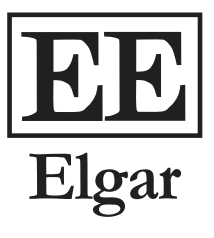
Michael Johnston explores the role the United States will play in global corruption control.
Whether or not the United States has actually been a leader in global corruption control – a genuinely open question – it has certainly had an influential role in the process. How is the advent of the Trump administration likely to affect that state of affairs?
US influence works via a wide repertoire of policies (some aimed at corruption control, but many more influencing the world’s aid, trade, and economic processes), through international organizations and agreements, and as a consequence of its size and economic clout. When and if the United States changes directions on corruption issues it makes sense to think about what new problems – and, perhaps, opportunities? – may result.
This question is distinct from any assessment of how corrupt Trump and his administration might be, or become, in their own right. On that score the early indications are not promising, but generalizations are premature. Rather, it has to do with the new administration’s likely effects upon the ideas, commitments, resources, and constraints the US brings to the anti-corruption debate. Speaking not as an American partisan, but rather as a participant in anti-corruption work for many years, I suggest that we will likely see a great deal of bad news – but, perhaps, some new opportunities as well.
Key concerns have to do with global institutions and cooperation. Trump’s distinctly negative attitudes in that regard – notably, his “America First” proclamations, and his dismissive attitude toward international organizations and commitments, give reason to wonder about American support for UNCAC, for example, and its willingness to follow through on obligations under the OECD treaty. Enforcement of the Foreign Corrupt Practices Act has focused disproportionately upon foreign-based businesses; will that trend intensify, and will prosecutions become more arbitrary?
More diffuse but no less crucial issues are those of norms and expectations. Quite apart from formal powers and commitments, heads of government – and particularly, American presidents – are expected to lead by positive examples, arguments, and incentives. Trump has shown little, in that regard; if anything, he is known for withdrawing from the Paris Climate Accords, and for stunts like shoving aside the Prime Minister of Montenegro during a photo shoot at NATO in Brussels. If – as most would agree – broad-based international coalitions are essential in a setting of increasingly borderless influence markets, the US may well be abdicating a critical leadership role.
Another intangible factor could be called “the tone at the top”. A president who is not only tolerant of his, and his family’s, conflicts of interest, but who defies routine expectations of transparency and compliance, sends powerful messages to powerful figures around the world. An administration that plays fast and loose with the truth, and that responds to subsequent challenges with personal attacks, fits of pique, and warnings (in effect) of “don’t question us”, is rolling back standards of accountability, not upholding them. That is being noticed worldwide: Walter M. Shaub Jr., the widely-respected former Director of the U. S. Office of Government Ethics, has been quoted in The New York Times as saying actions by Trump and his administration have made the US “close to a laughingstock” in ethical terms. Trump’s rise and political style, along with those of similar leaders and movements, may encourage a sense of impunity on the part of unscrupulous leaders elsewhere. Arbitrary violence portrayed as “reform” and crime control, electoral fraud, cyber-manipulation, and a general disdain for established institutions and modes of governing may be among the results.
Where, then, is there even a hope of a silver lining? What starts out as a leadership vacuum might become new opportunities. A more modest US role could make way for new reform ideas – alternatives to the economic liberalization scenarios and rigid, process-oriented conceptions of governance that have marked American outlooks in the past. New voices may be more easily heard, a more robust South-to-South dialog could emerge, and smaller societies may show us the progress they have made. In a new book, Transitions to Good Governance (Edward Elgar, 2017), Alina Mungiu-Pippidi and a team of researchers have used innovative measurement approaches to identify examples of “Virtuous Circles” in corruption control. Uruguay, Georgia, Estonia, South Korea, Taiwan, Costa Rica, and Chile – along with Botswana, Qatar, and Rwanda – have at times attracted relatively little attention in the reform debate, but they have made considerable anti-corruption progress under the radar. None has eradicated the problem, but all have dealt with corruption issues affecting citizens’ lives, and have done so in their own ways.
We have much to learn by looking at such cases, and by understanding their particular variations on anti-corruption thought and methods. To the extent that Donald Trump rolls back the US presence in the reform movement, some surprisingly good trends and ideas may now come to light.
Michael Johnston, Charles A. Dana Professor of Political Science, Emeritus Colgate University, Hamilton, NY 13346 USA
 Transitions to Good Governance is available now.
Transitions to Good Governance is available now.
Read Chapter One on Elgaronline.


Leave a Reply